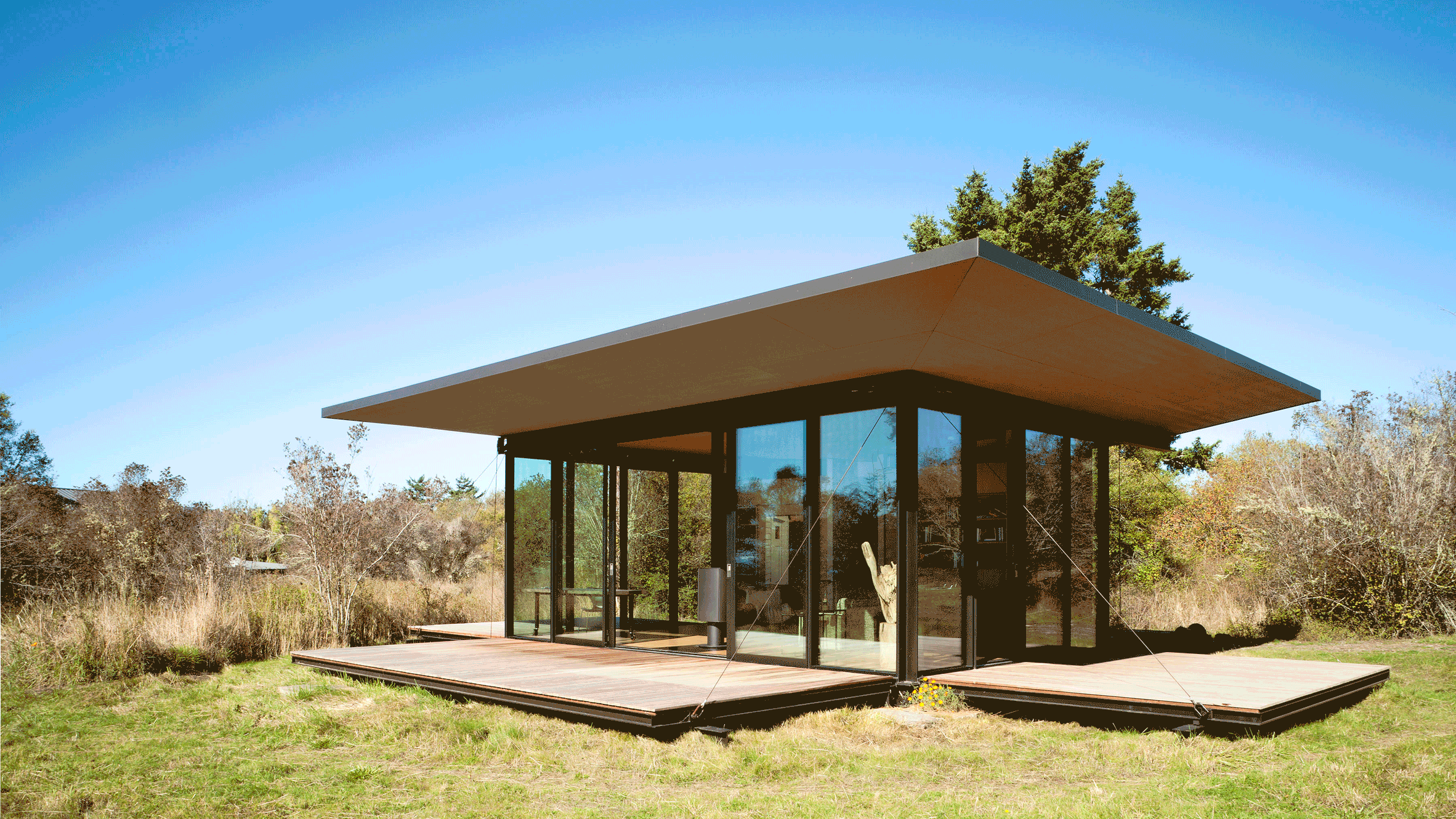
Olson Kundig designs glass cabin with drawbridge-style shutters
False Bay Writer's Cabin by architecture firm Olson Kundig in the USA has three glass sides surrounded by decks that double as shutters when pulled up like a drawbridge.
This unique feature allows the owners to secure their guest house cabin in San Juan Island, Washington, when not using it as a cosy writer's office.
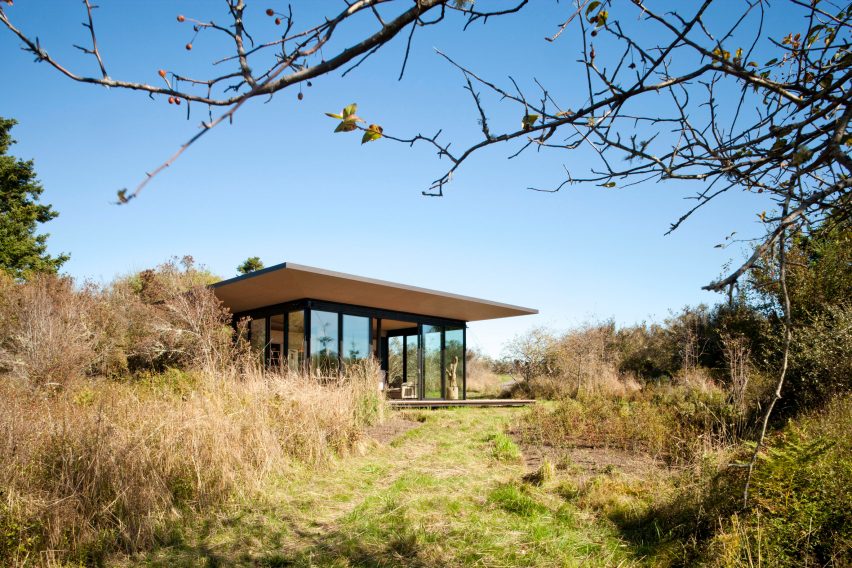
A system of hydraulic winches and wire rope pulls the decks up to protect the glass walls. Three steel sleepers provide supports for the timber panels to rest upon.
When the decks are down, sliding glass doors open the interior space to the outdoors.
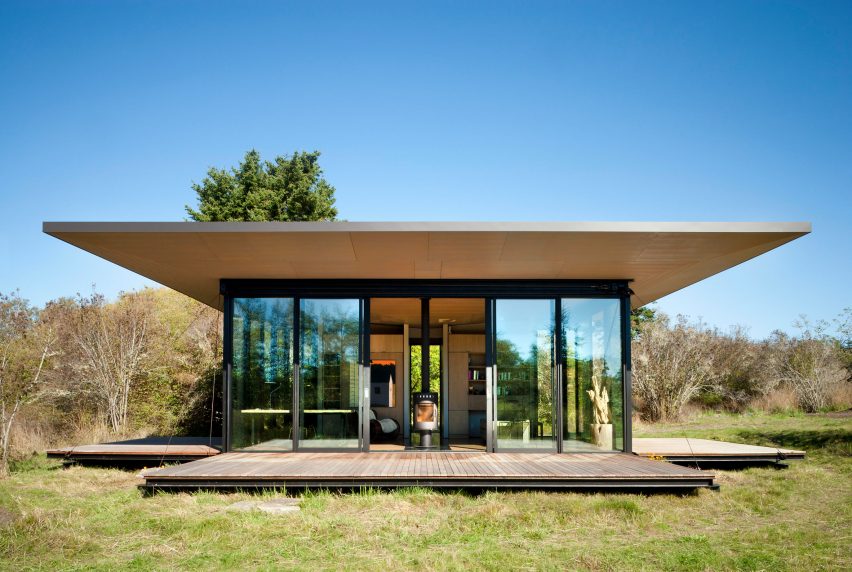
The fireplace in the living area can rotate 180 degrees, facing in towards the sofas for a cosy winter evening or turned out towards the deck to warm those seated outside.
"It is intended to be a shelter of extremes, open or closed," said architect Tom Kundig.
"In order to feel cold, you have to feel hot, in order to feel safe, you have to feel at risk. Contrast is the true measure of a complete experience."
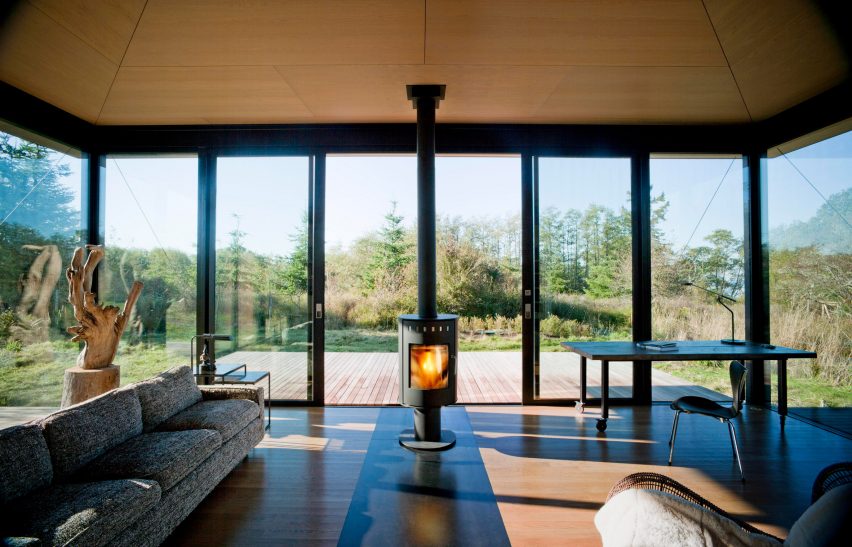
Inside, the cabin has 500 square feet (46 square metres) of floor space. A single room contains an open plan living area.
The wooden floor is bisected by a panel of blackened steel that runs from the back of the cabin, where there is a small window, to the glazed front. The steel matches the fireplace and the cylindrical chimney that tops it.
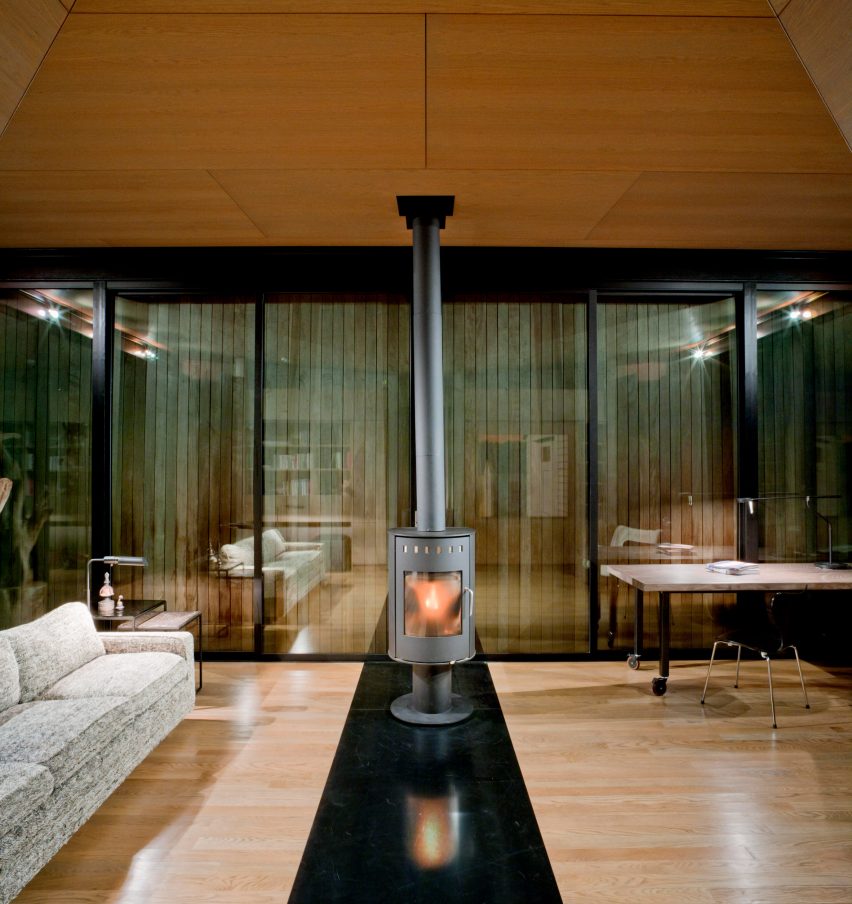
A Murphy bed folds down from the back wall to transform the space into a guest cottage, with the shutters doubling as curtains.
There is also a small kitchen and a separate bathroom at the back of the cabin. A rack on the exterior's non-glazed wall can hold the cabin owners' kayaks.
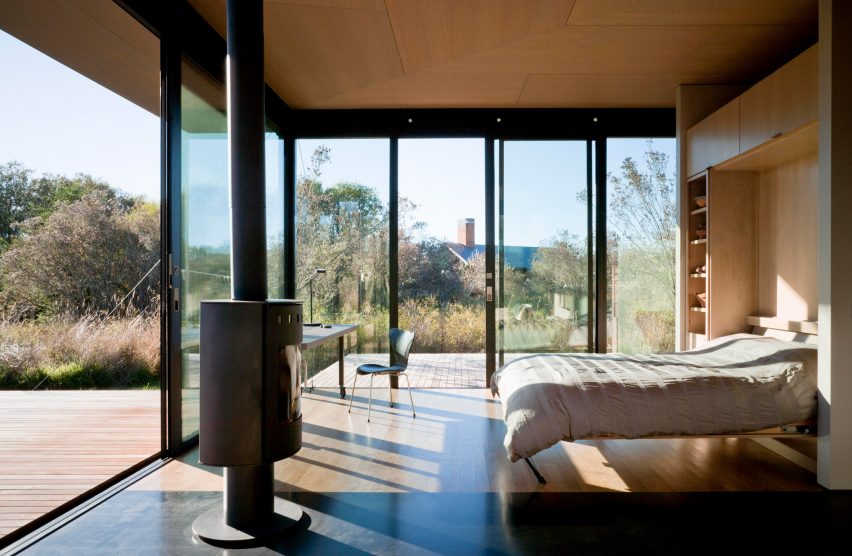
Olson Kundig Architects was founded by Jim Olson in 1967, and the practice is based in Seattle.
Recent projects include a house in the mountains of Utah formed of three pavilions and a home in Wyoming covered in wooden shutters on a pulley system.
Photography is by Tim Bies.
Project credits:
Architect: Olson Kundig Architects
Project team: Tom Kundig, Kirsten R Murray, Paul Schlachter, Todd Matthes
Contractor: Lowe Construction
Structural engineering: MCE Structural Consultants
Shutter decks: Turner Exhibits
Interior design: Sara Steinfeld
Landscape design: Island Gardens
Steel fabrication: Gem Welding